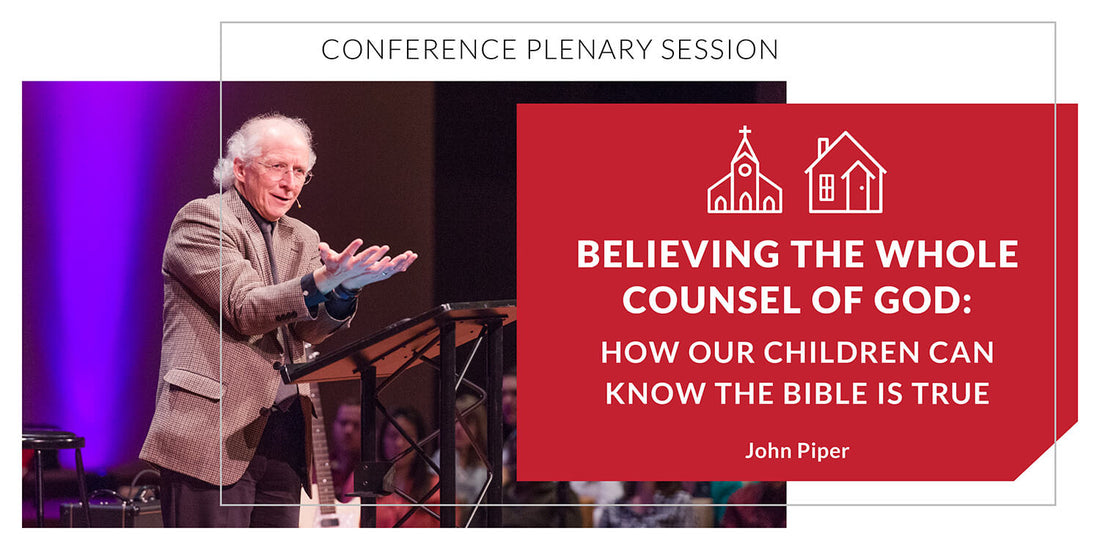THEME: Persevering in the Whole Counsel of God | PLENARY SESSION: 2016 National Conference | BY: John Piper
What must take place in order for children to know that the Bible is true, and for them to believe the whole counsel of God? John Piper, seeking to answer that question, begins his message by defining what the whole counsel of God is.
He notes that Paul was so consumed by his responsibility to declare the whole counsel of God, that at the end of his ministry he could say with confidence to the Ephesian elders, “I am innocent of the blood of all” (Acts 20:26).
Yet the declaration of the whole does not ensure that it will be embraced. Many saw but did not “see.” They saw with their physical eyes…but did not see with the eyes of their heart. What they should have seen…and what they were to see and we are to see is a “peculiar glory.” A peculiar glory that was and is revealed in…
- the creation.
- the incarnation.
- the Gospel of Jesus Christ.
Dr. Piper explains why the Bible is self-authenticating in each of these areas. And when the miracle of new birth happens, whether for children or adults, they will say, “I cannot not believe that God did not make that.”
He also made four observations/encouragements for those who influence the next generation:
- Children begin believing the Bible because their parents believe the Bible.
- Build as much Bible into them as you can.
- At some point, God moves in His elect children to open their eyes, by a supernatural power, and their hearts perceive a peculiar glory of God.
- As they mature, they have a growing capacity to see and savor Christ, and we have a great responsibility to connect them with the astonishing, peculiar glory.
Discussion Questions
- How did Dr. Piper define the whole counsel of God?
- Do you agree with his argument that as interesting and helpful as apologetics can be, there has to be something more at the root of belief then answers to questions?
- If only by a miracle we see with the eyes of our heart, what role does the whole counsel of God play in the miracle?
- Regarding the ministry to children in our churches and home, is there a shift away from teaching the whole counsel of God? If so, why do you think so? If not, what evidence would you offer?
- Discuss this quote from Jonathan Edwards: “Unless men can come to a reasonable solid, persuasion and conviction of the truth of the gospel by the internal evidences of it mainly, by a sight of its glory, tis impossible that those who are illiterate and unacquainted with history should have any thorough or effectual conviction of it at all.” How does this encourage you in your ministry to children?
- Dr. Piper ended his message by saying this about children: “If they see the glory…they cannot not believe. So, what are practical ways in which we can help our children see the ‘peculiar glory’?”
Note: This session was produced under our previous name, Children Desiring God.






